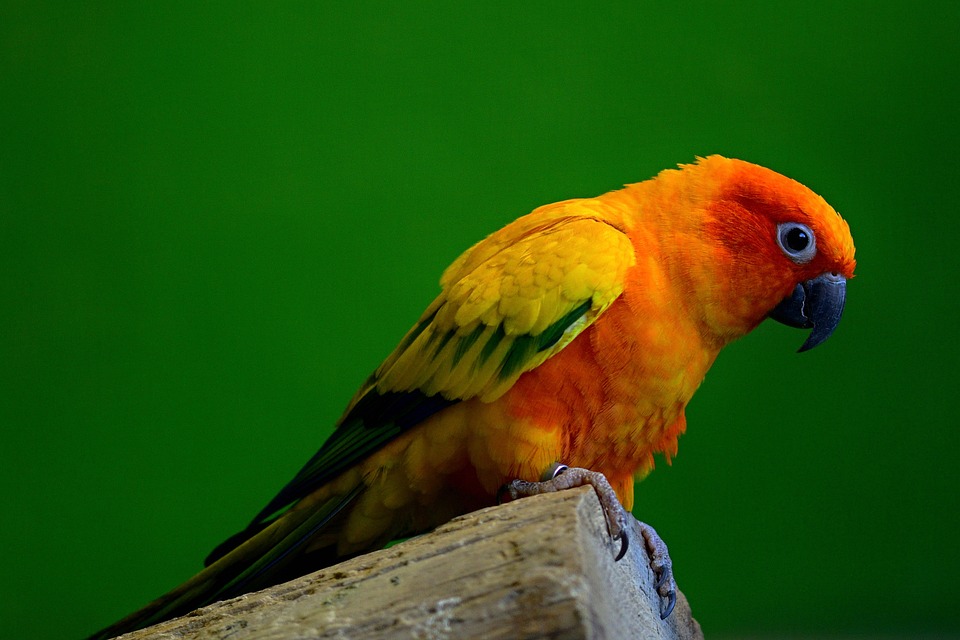Parrots are intelligent and curious creatures that often exhibit destructive chewing behavior. While chewing is a natural instinct for them, it can become problematic when they start damaging furniture, toys, or even themselves. Fortunately, there are several effective strategies you can employ to discourage destructive chewing behavior in your parrot. In this article, we will explore these strategies and provide answers to some frequently asked questions about parrot behavior.
Understanding the Root Causes of Destructive Chewing
Before addressing the issue of destructive chewing, it’s important to understand why parrots engage in this behavior. Parrots chew for various reasons, including exploration and curiosity, boredom or lack of mental stimulation, teething or beak maintenance, and attention seeking. By identifying the underlying cause of your parrot’s destructive chewing behavior, you can tailor your approach to address the specific issue effectively.
Effective Strategies to Discourage Destructive Chewing
1. Provide Appropriate Toys: Offer a variety of safe and parrot-friendly toys that are designed to be chewed. Toys made of wood, natural fibers, and safe plastics can redirect your parrot’s chewing behavior towards acceptable objects.
2. Rotate Toys Regularly: Introduce new toys and rotate them regularly to keep your parrot engaged and prevent boredom. This helps reduce the likelihood of your parrot resorting to destructive chewing out of frustration.
3. Increase Mental Stimulation: Engage your parrot in mental activities such as puzzle toys, foraging, and training sessions. This helps keep their mind occupied and reduces the need for excessive chewing.
4. Positive Reinforcement: Reward your parrot with treats, praise, or attention when they exhibit appropriate chewing behavior. Positive reinforcement helps reinforce good habits and encourages your parrot to redirect their chewing to acceptable items.
5. Environmental Enrichment: Create a stimulating environment for your parrot by providing perches, ladders, swings, and other interactive accessories. This encourages physical exercise and mental stimulation, reducing the likelihood of destructive chewing.
6. Supervision and Diversion: When your parrot is outside its cage, closely supervise their activities. If you catch them engaging in destructive chewing, calmly redirect their attention to an appropriate toy or activity.
7. Avoid Punishment: Never punish your parrot for destructive chewing as this can cause fear or aggression. Instead, focus on positive reinforcement and redirection techniques.
FAQs about Parrot Behavior and Chewing
Q1: How can I tell if my parrot’s chewing behavior is destructive or normal?
A1: Destructive chewing is characterized by excessive damage caused to furniture, walls, or other objects. Normal chewing behavior involves exploring and shredding toys or other designated chewing items.
Q2: My parrot only chews on my belongings, not its toys. What should I do?
A2: Ensure your parrot has a variety of safe and appealing toys. Experiment with different textures, sizes, and materials until you find ones that capture their interest. Additionally, redirect their attention whenever they start chewing on inappropriate items.
Q3: My parrot’s destructive chewing behavior is becoming worse. What can I do?
A3: Consider consulting an avian behaviorist or an experienced avian veterinarian to evaluate your parrot’s behavior. They can provide guidance tailored to your specific situation and help address any underlying issues.
Q4: Can I use bitter-tasting sprays to deter my parrot from chewing?
A4: While bitter-tasting sprays may discourage chewing temporarily, they are not a long-term solution. It’s best to focus on providing appropriate alternatives and redirecting their chewing behavior positively.
In Conclusion
Discouraging destructive chewing behavior in your parrot requires patience, consistency, and understanding of their needs. By providing appropriate toys, mental stimulation, positive reinforcement, and a stimulating environment, you can redirect your parrot’s chewing behavior to more acceptable outlets. Remember to avoid punishment and seek professional help if needed. With time and effort, you can help your parrot develop healthier chewing habits and enjoy a harmonious bond with your feathered friend.









